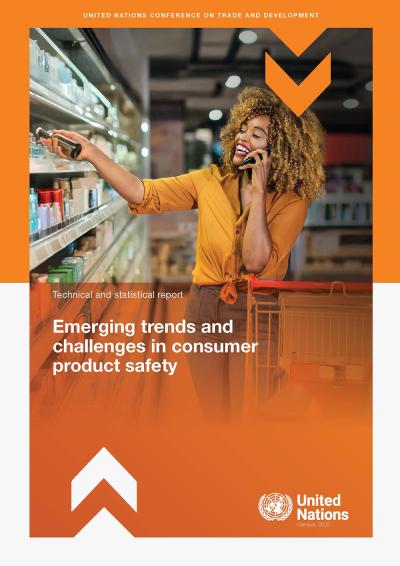
With cross-border e-commerce booming and informal markets expanding, ensuring consumer safety is ever more urgent. As demand for sustainable and compliant products grows, regulatory gaps in developing countries remain a pressing challenge. UN Trade and Development (UNCTAD) is at the forefront of global efforts to protect consumers, shaping policies that ensure safer products for all.
This publication examines the emerging trends and challenges in consumer product safety.
44% of UN Member States lack sufficient legal frameworks to ensure product safety, according to the UNCTAD World Consumer Protection Map.
Unsafe products pose health, environmental, and economic risks, with inadequate disposal and hazardous materials harming both consumers and ecosystems.
E-commerce has transformed global trade — and also allowed unsafe products to bypass regulations, creating risks for online shoppers worldwide.
Case studies from Argentina, France, Lithuania, Peru, South Africa, Thailand, Viet Nam, COMESA, and OAS offer valuable lessons in regulatory best practices and emerging threats.
Why This Matters for Sustainable Development
Consumer product safety is a pillar of the United Nations Guidelines for Consumer Protection (UNGCP) and plays a critical role in achieving the Sustainable Development Goals (SDGs), particularly:
- SDG 3 (Good Health and Well-being) – Reducing harm caused by unsafe products.
- SDG 12 (Responsible Consumption and Production) – Strengthening safety and sustainability in global markets.
The rapid expansion of online trade presents new regulatory hurdles. Unlike traditional retail, digital marketplaces often allow unsafe products to reach consumers across borders, making enforcement difficult. This publication explores the role of governments, businesses, and international organizations in closing these regulatory gaps.
A Global Call to Action
This report provides policy recommendations to:
- Harmonize safety standards across jurisdictions.
- Enhance regulatory frameworks to adapt to e-commerce and digital trade.
- Support policymakers in creating resilient, consumer-centered safety measures.
- Strengthen international cooperation on consumer product safety.
Related links:


